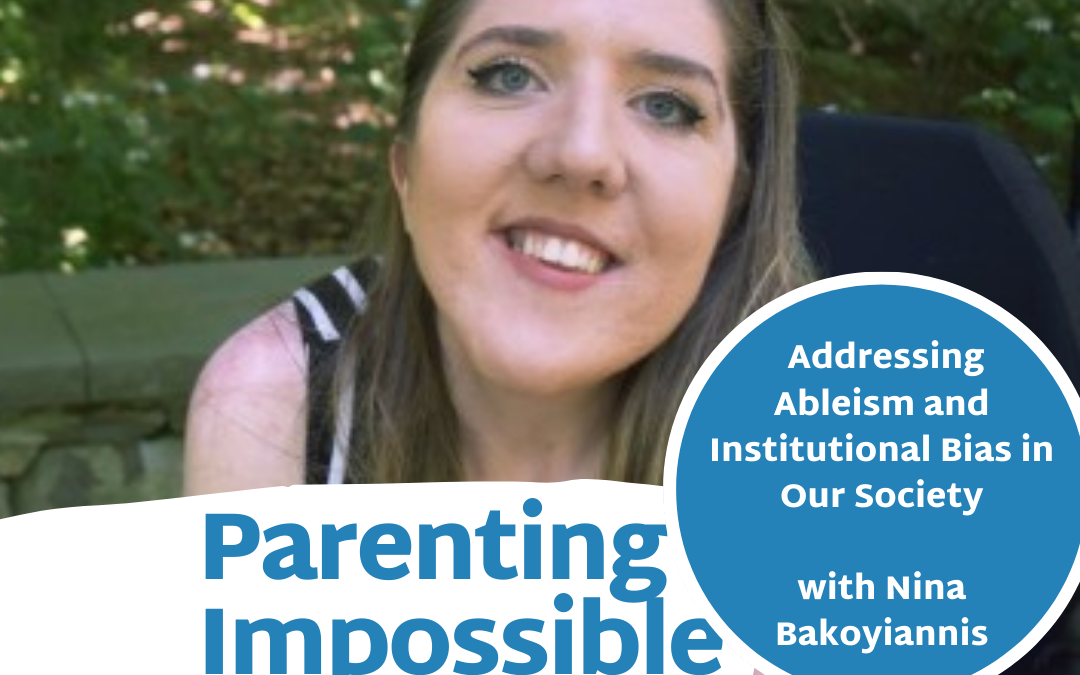In this episode of our Parenting Impossible podcast, Annette interviews “warrior woman,” Nina Bakoyiannis, to discuss the interwoven framework of disability discrimination in our society that exists both interpersonally and institutionally.
Under her pen name “Despina Bakos,” Nina created a blog where she talks more generally about her experiences growing up with a physical disability and the issue of ableism in our society. She also works with a grassroots disability rights organization in New York called ADAPT that is currently working on Medicaid reform and advocates for funding and community understanding of home care services. In her professional life, she is currently studying to be a clinical psychologist, completing her third year of a Ph.D. program where she studies the intersection of ableism and mental health.
Nina describes ableism as the discrimination towards disabled people that manifests in a wide array of damaging behaviors. One such behavior is believing that the lives of disabled people are more disposable than others. Another ableist behavior is assuming that able-bodiedness is the standard. This mindset creates lower expectations for disabled people regarding relationships, employment, quality of life and more.
Unfortunately, the majority of lawmakers operate under these assumptions, leaving the disabled community unrepresented and unprotected. For example, many people are disqualified from benefits, SSI, and Medicaid when they get married because their partner’s assets get added into the equation, increasing their household income above the maximum limit that these programs will cover. This discrepancy leaves individuals with disabilities without the financial support they need.
Nina and Annette also dive into the discussion of Institutional Bias. People with disabilities and those who are dependent on home and community care should be able to stay in the community and not be forced to live in an institution. Advocates are fighting to prevent members of the disabled community from being mandated to live in institutions when that is all that Medicaid will pay for.
Listen to the full conversation in the podcast below. You can also find Nina’s website here and follow her on Twitter and Instagram.
Annette Hines has been practicing in the areas of Special Needs, Elder Law, and Estate Planning for more than 20 years. Ms. Hines brings personal experience with special needs to her practice and podcasts as the mother of two daughters, one of whom passed away from Mitochondrial disease in November 2013. This deep, personal understanding of special needs fuels her passion for quality special needs planning and drives her dedication to help others within the special needs community.

